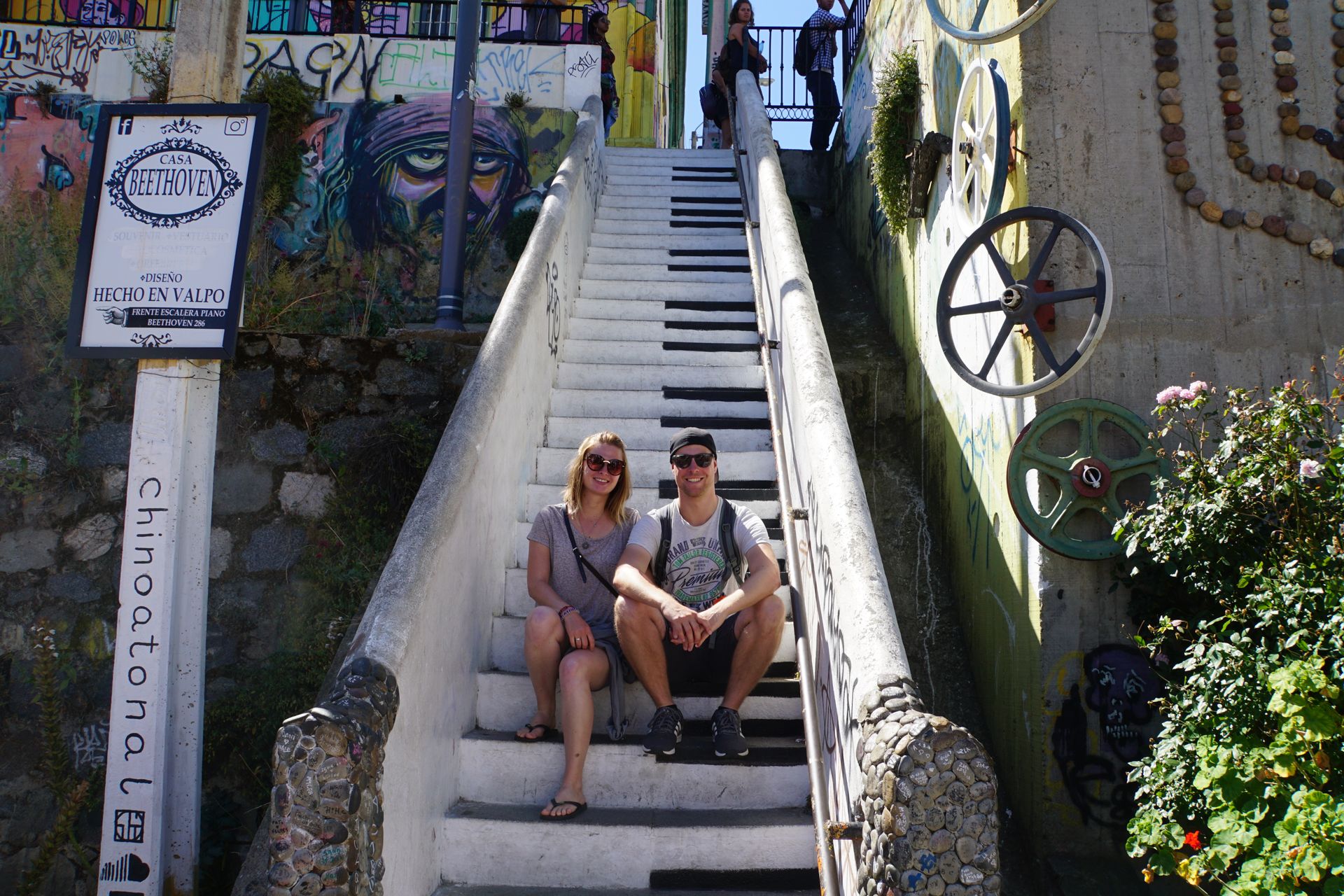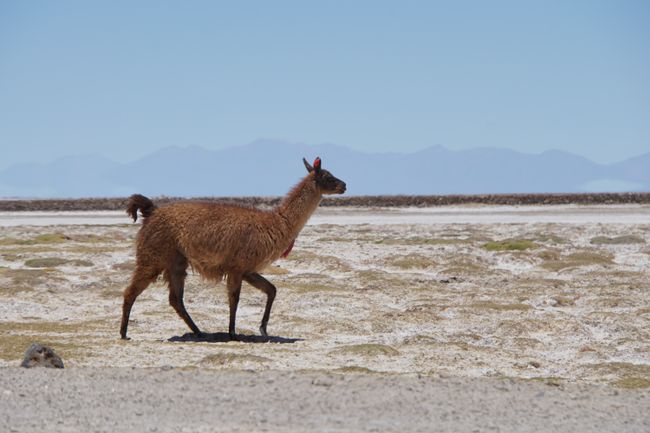Napier, Wellington and Cook Strait
Whakaputaina: 03.03.2019
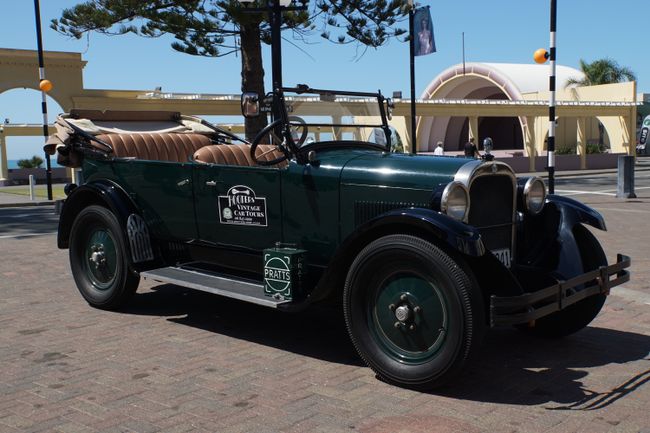
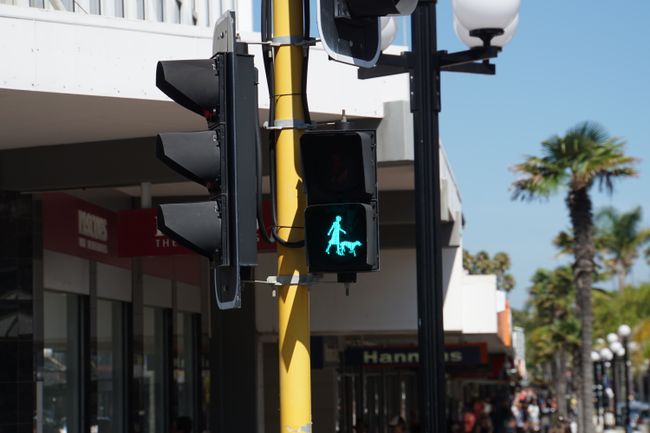
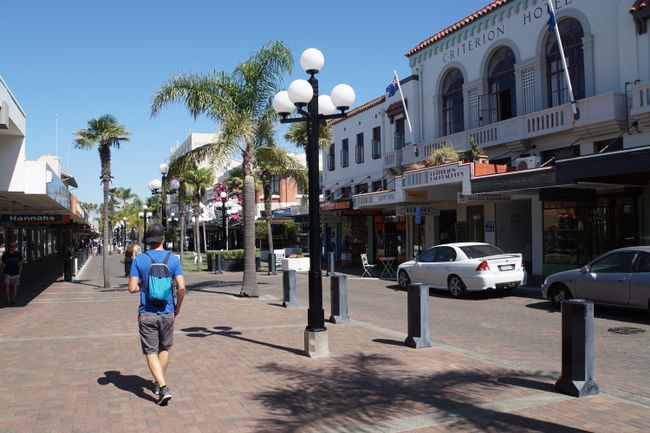
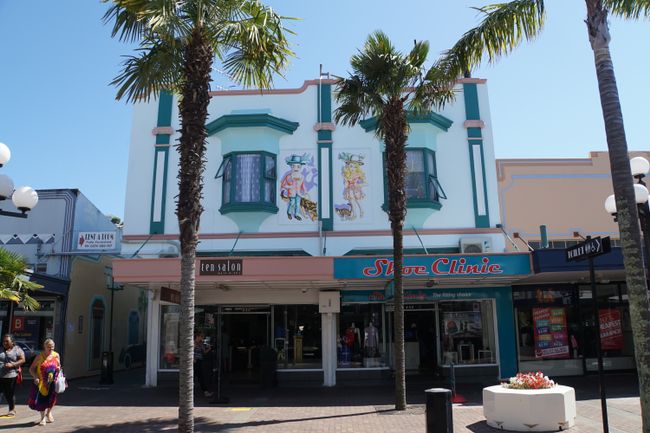
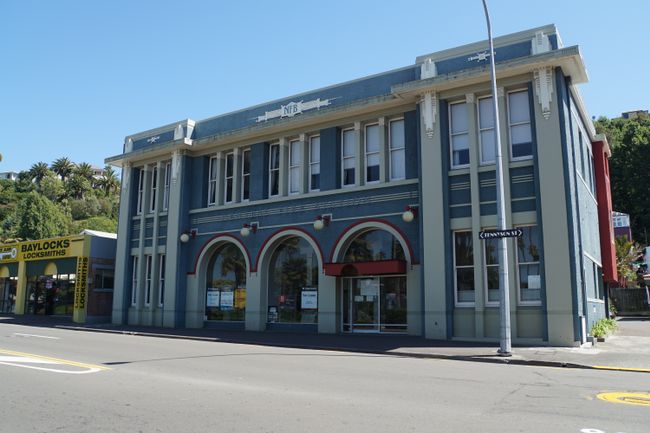
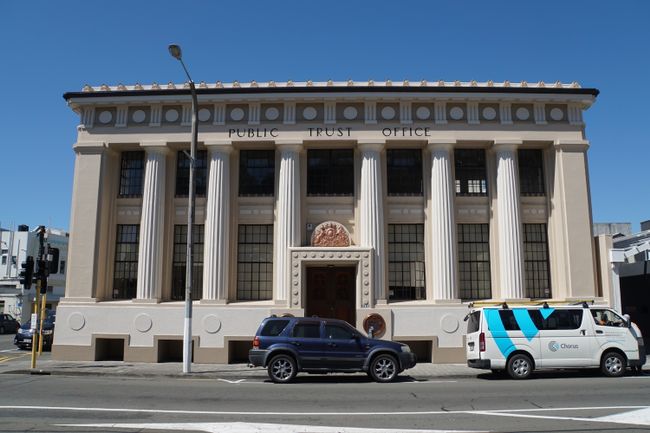
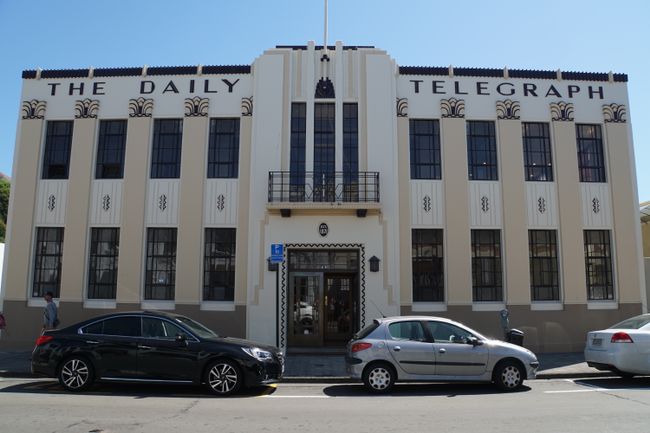
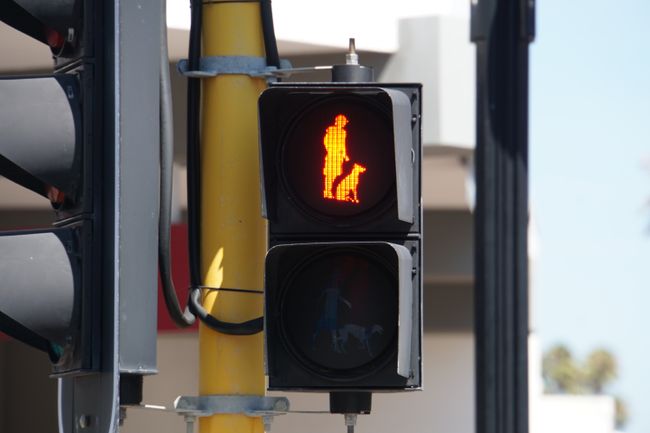
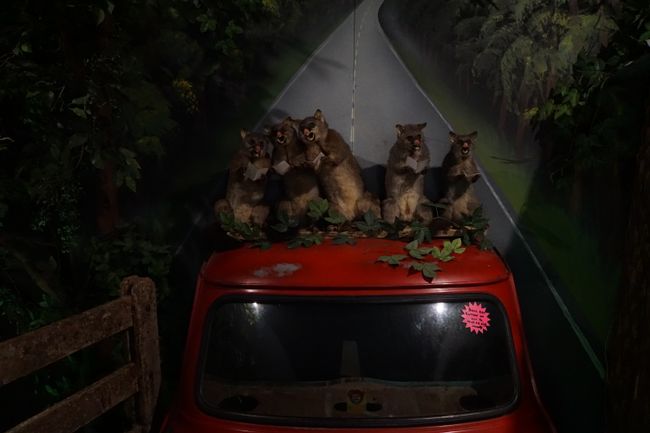
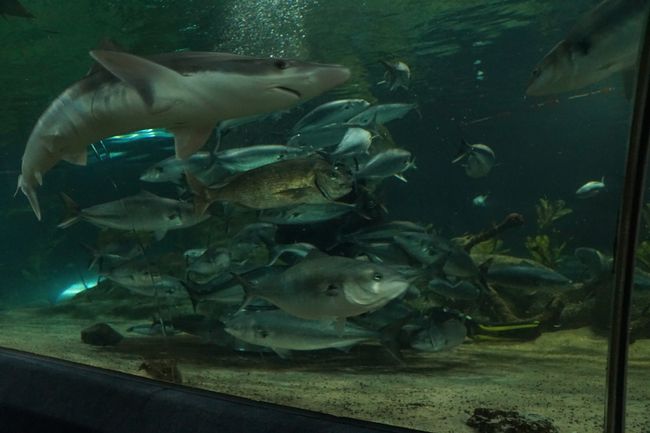
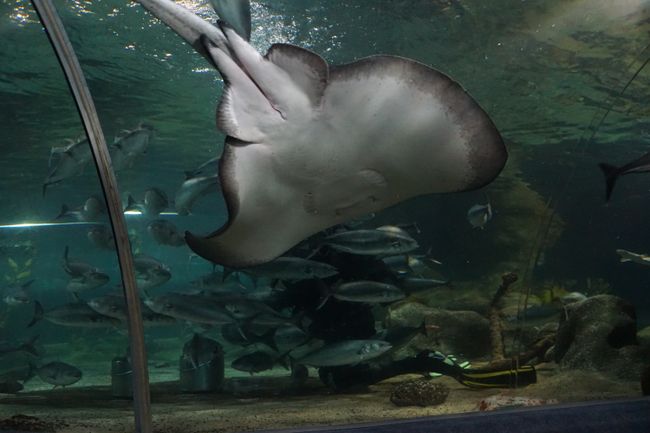
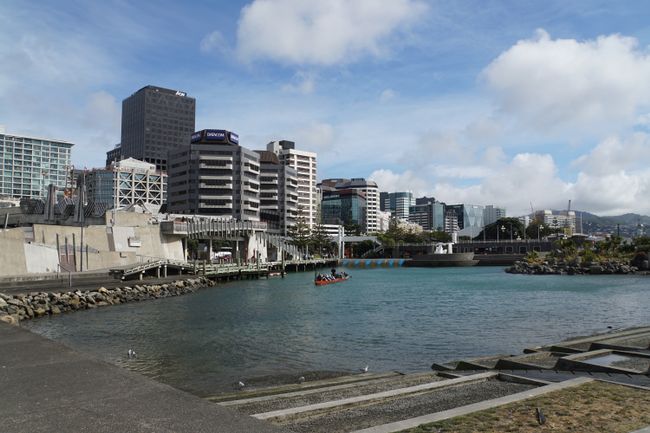
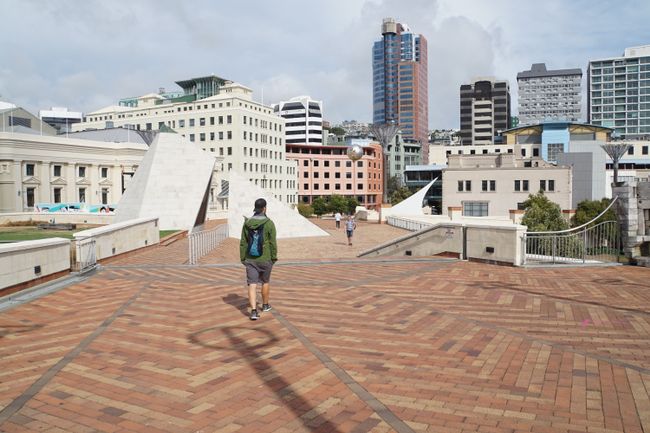
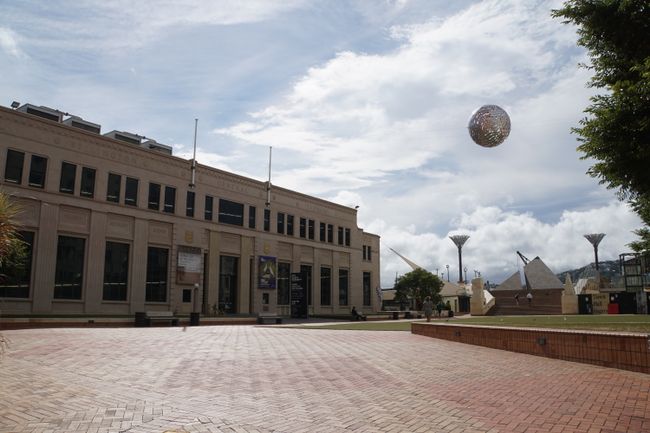
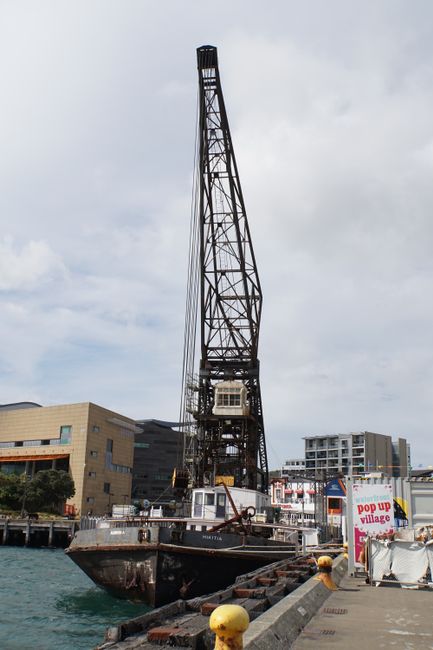
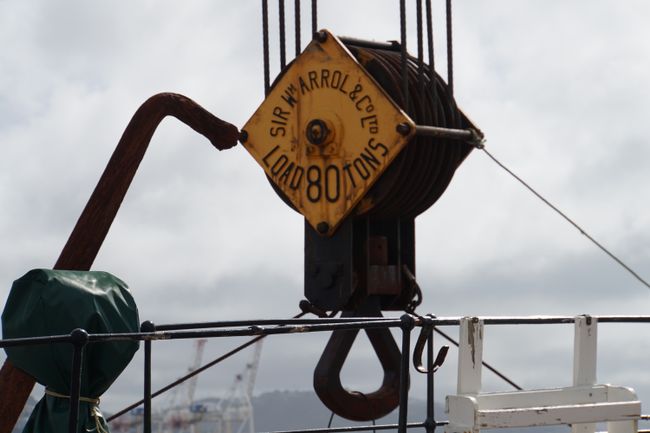
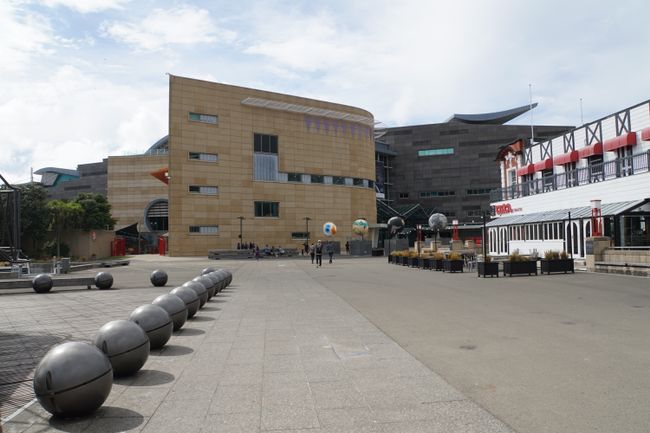
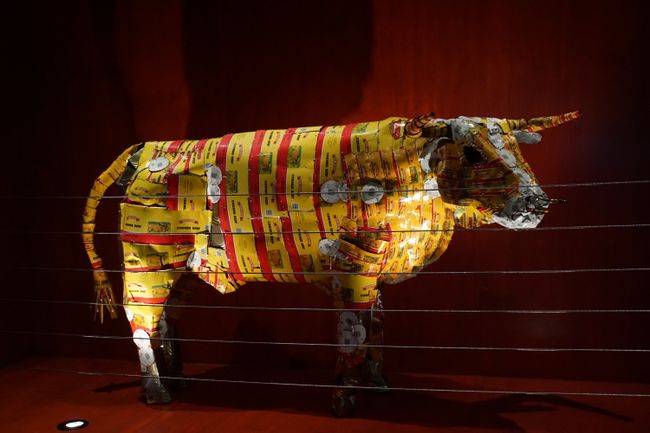
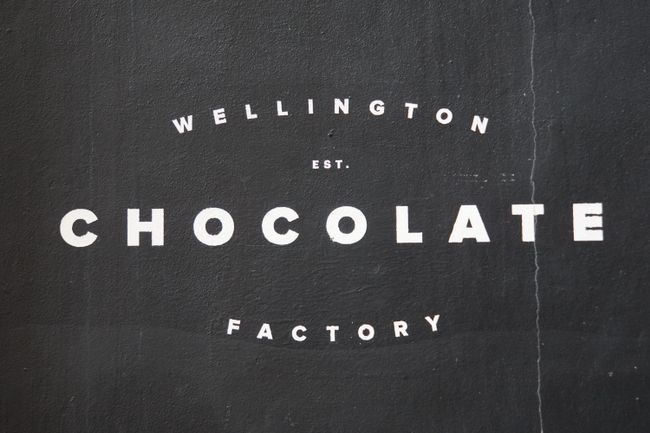
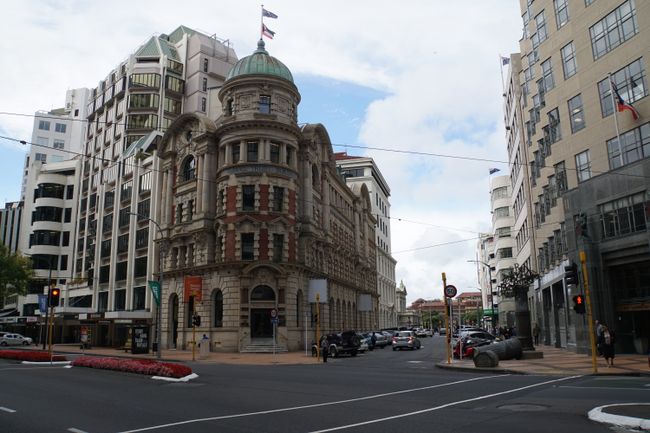
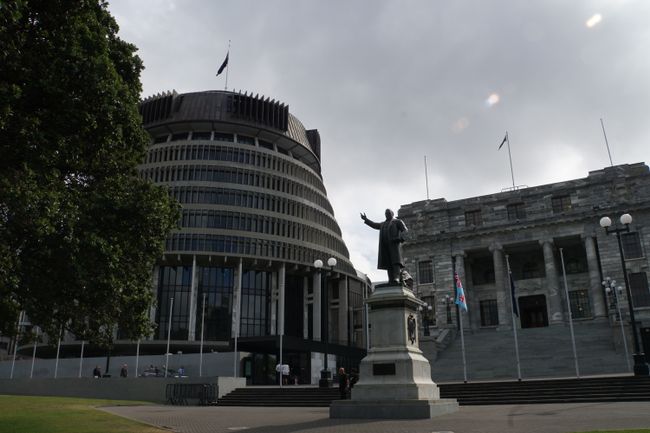
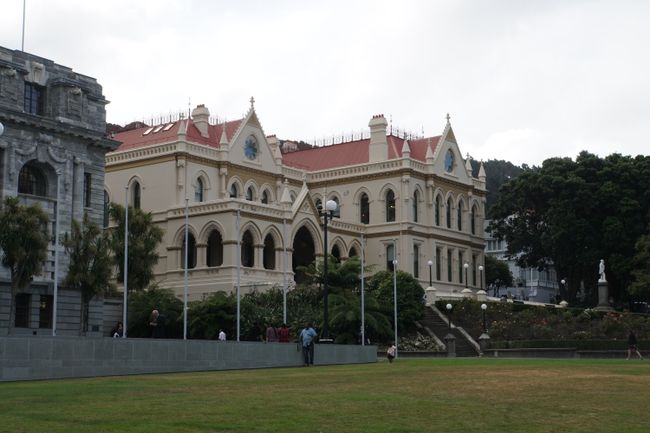
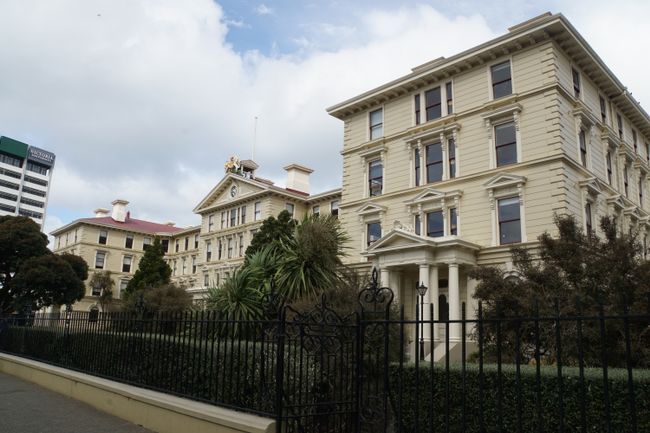
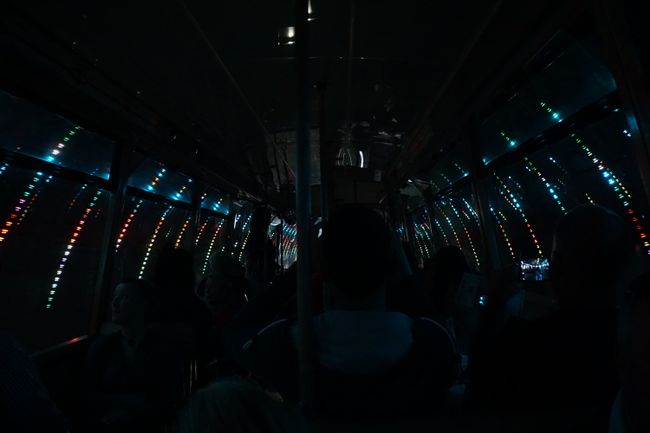
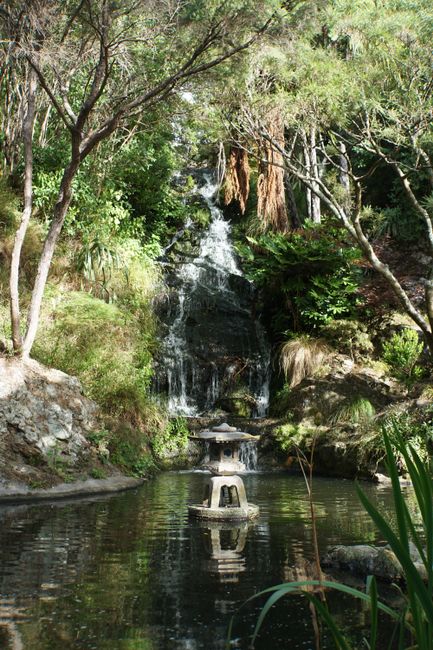
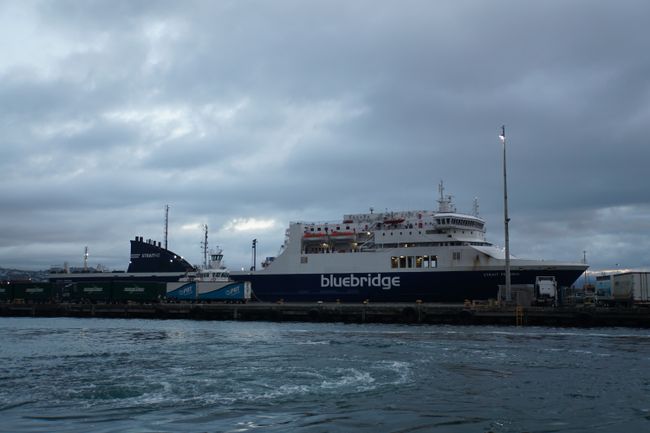
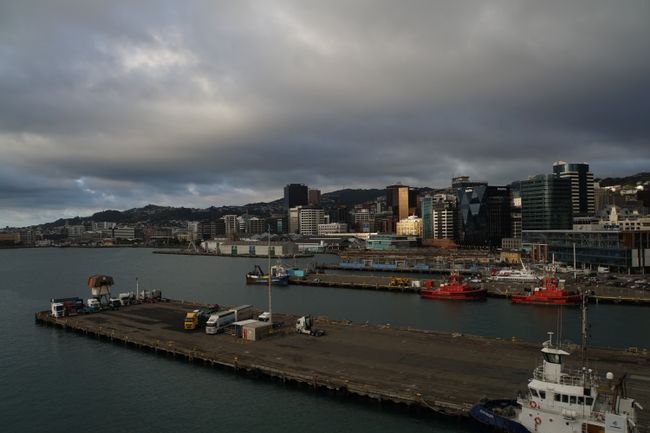
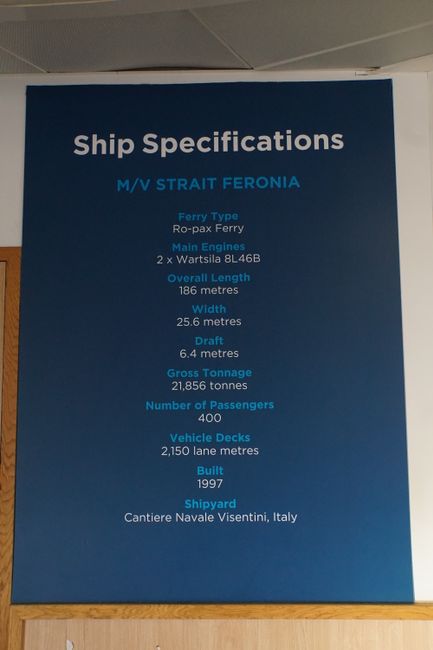
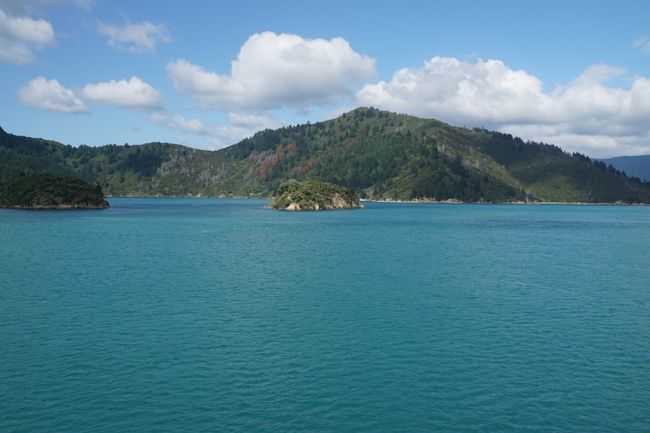
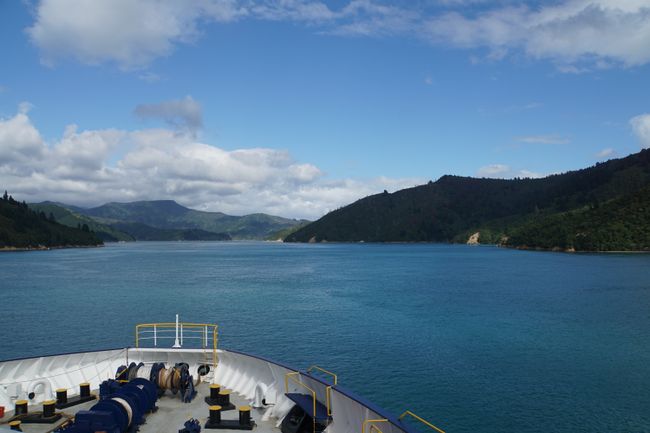
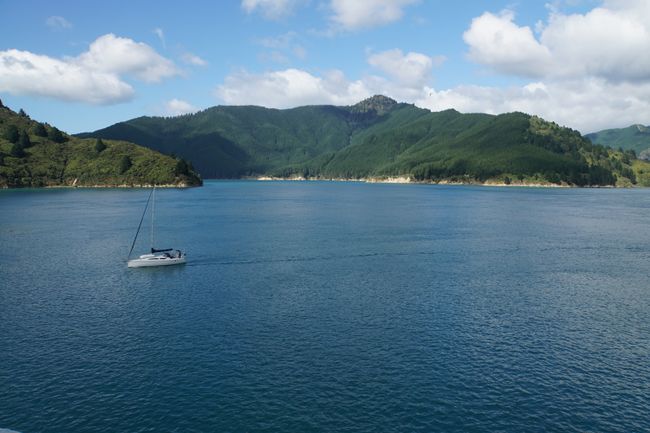
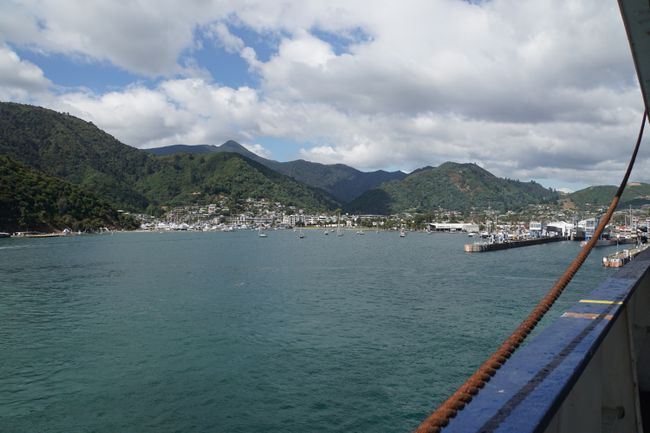
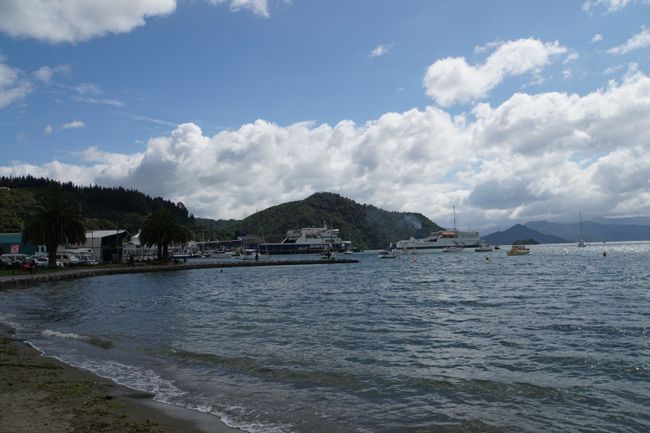
Ohauru ki te Panui
From Whirinaki Forest Park, we now drive without much interruption to Napier, a small port city on the east coast of the North Island. With a population of around 62,000, Napier is the largest city in Hawke's Bay, the bay between Gisborne and Hastings. The town has a special charm, and it's not just the mild climate that attracts tourists from all over the world. The town was hit by a magnitude 7.9 earthquake in 1931 and completely destroyed by the subsequent fire. It was largely rebuilt in the Art Deco style during the ongoing Great Depression. This predominantly uniform architecture creates a very harmonious cityscape, and the brightly painted facades make Napier one of the most charming cities we have visited. The houses, bars and cafes, small boutiques and galleries, and even the 'traffic lights' immerse us in a long-forgotten era. Art Deco is omnipresent here and is showcased and lived accordingly. We can't help but admire some of the Art Deco buildings, pause at shop windows with fashion mannequins from the 1920s, and watch one of the many vintage cars drive by. Special city tours are offered in vintage cars, with the drivers dressed in Art Deco style. There is even an annual Art Deco festival in Napier in February. Unfortunately, we missed it and only explore the charming city center on foot.
We start our visit to Napier with a visit to the i-site, the tourist information center here in New Zealand. There we receive a map with a tour of the most beautiful Art Deco buildings, which we immediately start.
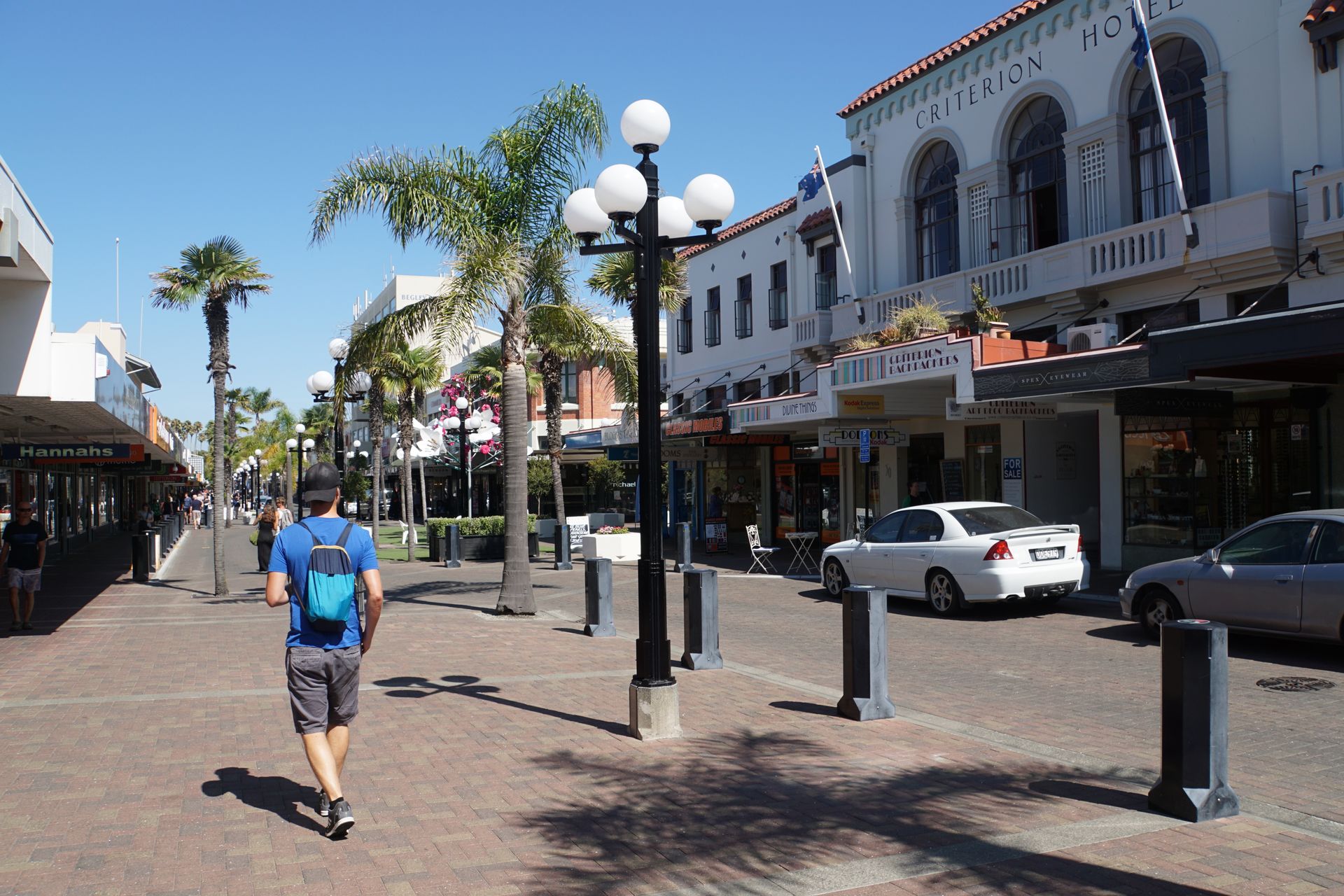
Emerson Street with palm trees and Art Deco facades


The fire station in the style of the city
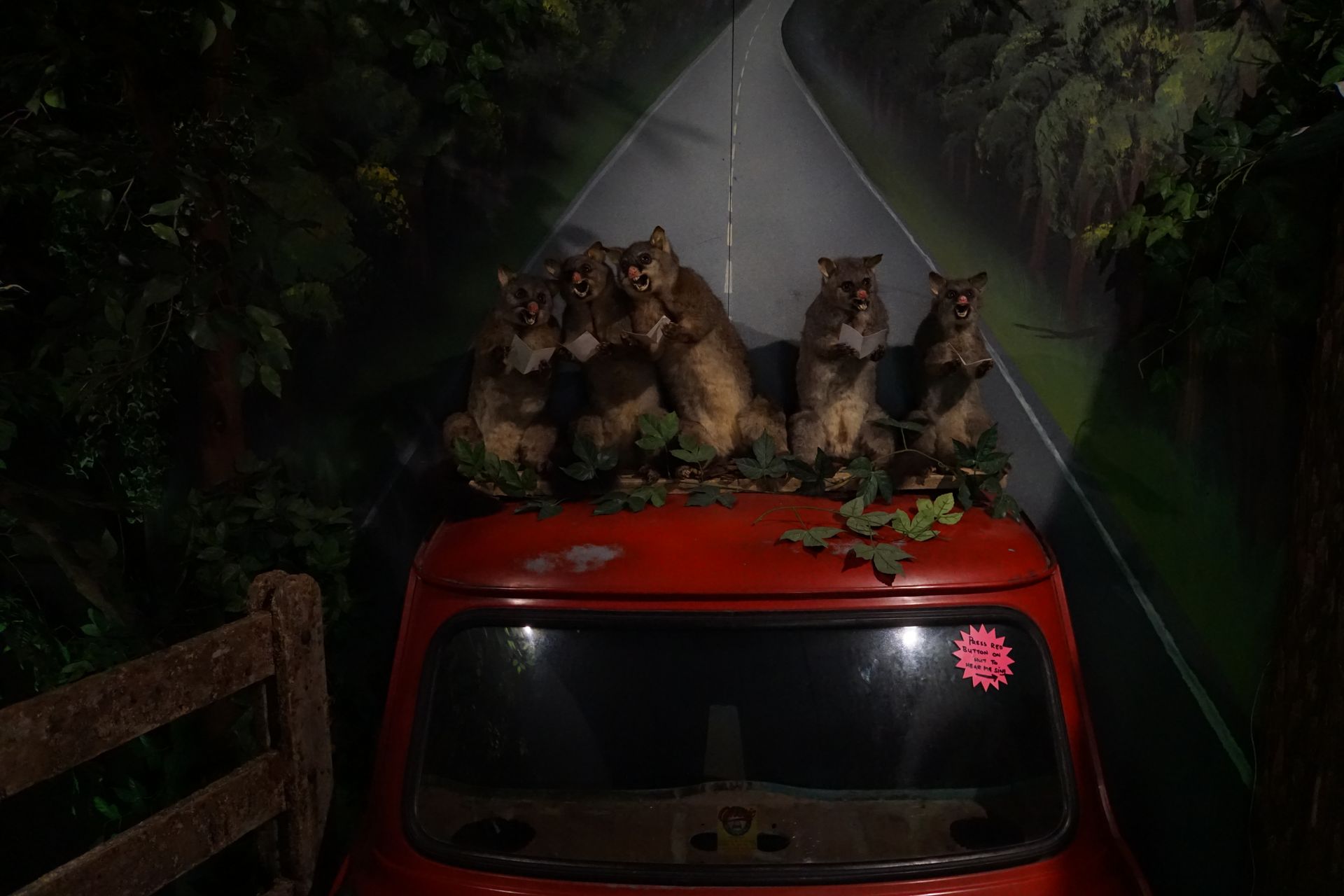
The fur-wool products have caught my (Laura's) attention. On the one hand, it's a good deed for kiwi conservation (or rather New Zealand conservation, as the animals destroy 9,000 tons of vegetation every night, at least if we assume there are currently 30 million animals), and on the other hand, the fiber from sheep and possum fur is warmer than pure wool and much more durable than cashmere, but just as soft.
Afterwards, we visit the National Aquarium of New Zealand. This is one of the largest and best aquariums in the country and features an underwater tunnel and a live shark feeding. So we spend a few more hours in the cool aquarium, visit the little blue penguins, all of which have been rescued and cannot be released back into the wild, admire the alligator, the giant turtle, and the kiwi couple in the nocturnal house. The tunnel that runs under the ocean tank is an absolute highlight, especially as we arrive just in time for the feeding. Here, sharks and rays glide weightlessly over us in 1.5 million liters of water. A diver hand feeds many of the large animals. It's fascinating when you catch a glimpse of him, as he is almost constantly covered by a swarm of hungry fish.
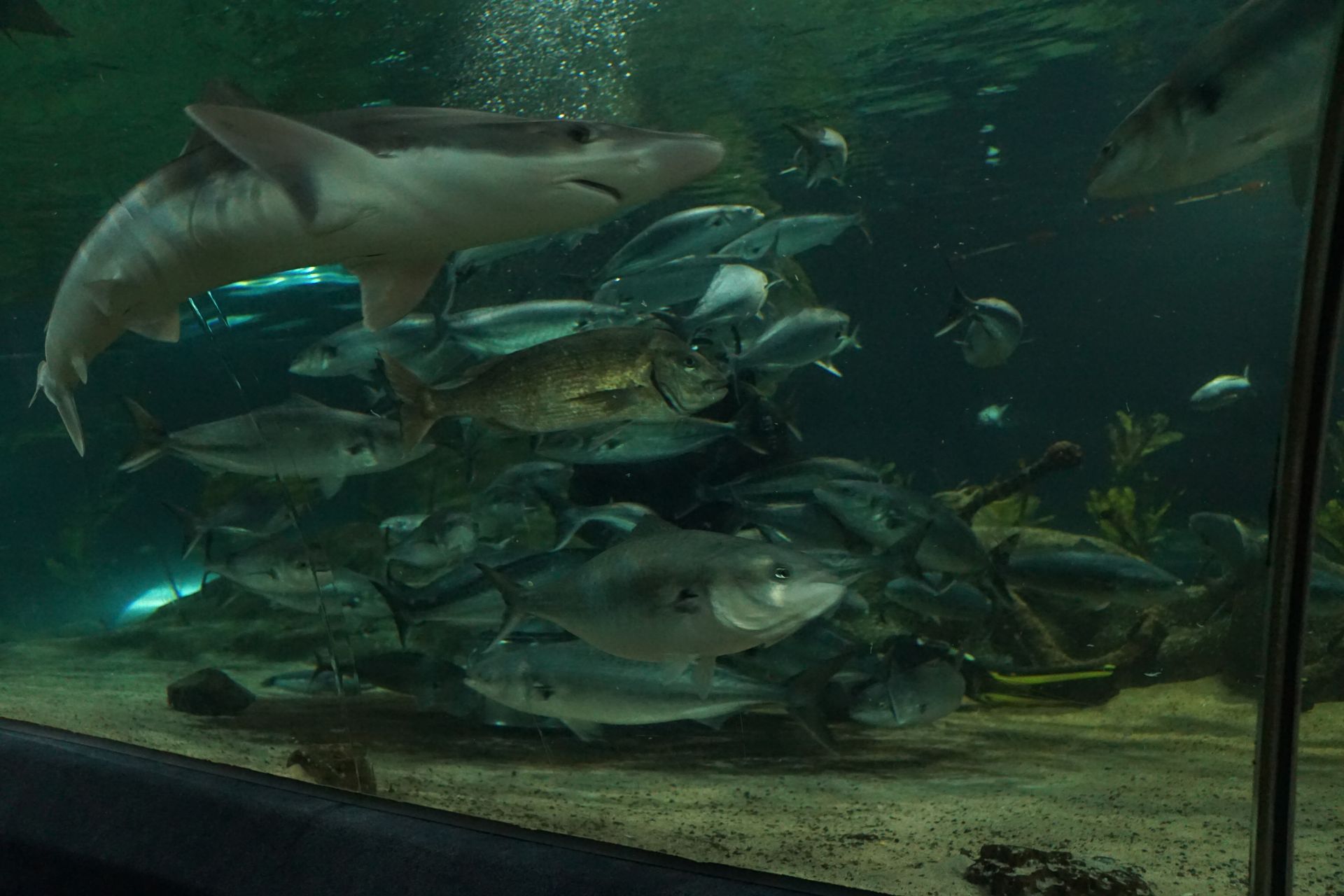
After the aquarium, we have pizza and then drive to Wellington. It is almost dark when we arrive at a very basic DOC campground not far from the highway and about 20 minutes drive to the city center. Here we can check in ourselves and quickly disappear into our tent.
The next morning, we find ourselves - we can hardly believe it - actually stuck in traffic! The first time in New Zealand. It's already past eight, but rush hour, which we have forgotten about on our trip, is clogging the streets. So it takes us twice as long as expected. We are camping only 5km from the ferry terminal, which we plan to take tomorrow morning, in the backyard of a backpacker hostel. We are off the beaten track and can explore the city on foot. Plus, we can park Klaus-Gunther there for free.
With a population of just under 207,000, Wellington is the third largest city in New Zealand. While Auckland represents the country's economic center, Wellington has been the capital since 1865 and is certainly the art and culture center. Everything here is a bit 'hipper.' New Zealand's Hollywood is located here, as well as the Parliament. Therefore, there is much to see for us, even though we only have one day for it. We start our city tour at Civic Square, a square that was renovated in the 1990s and stands out with its numerous sculptures and the avant-garde building of the Central Library.
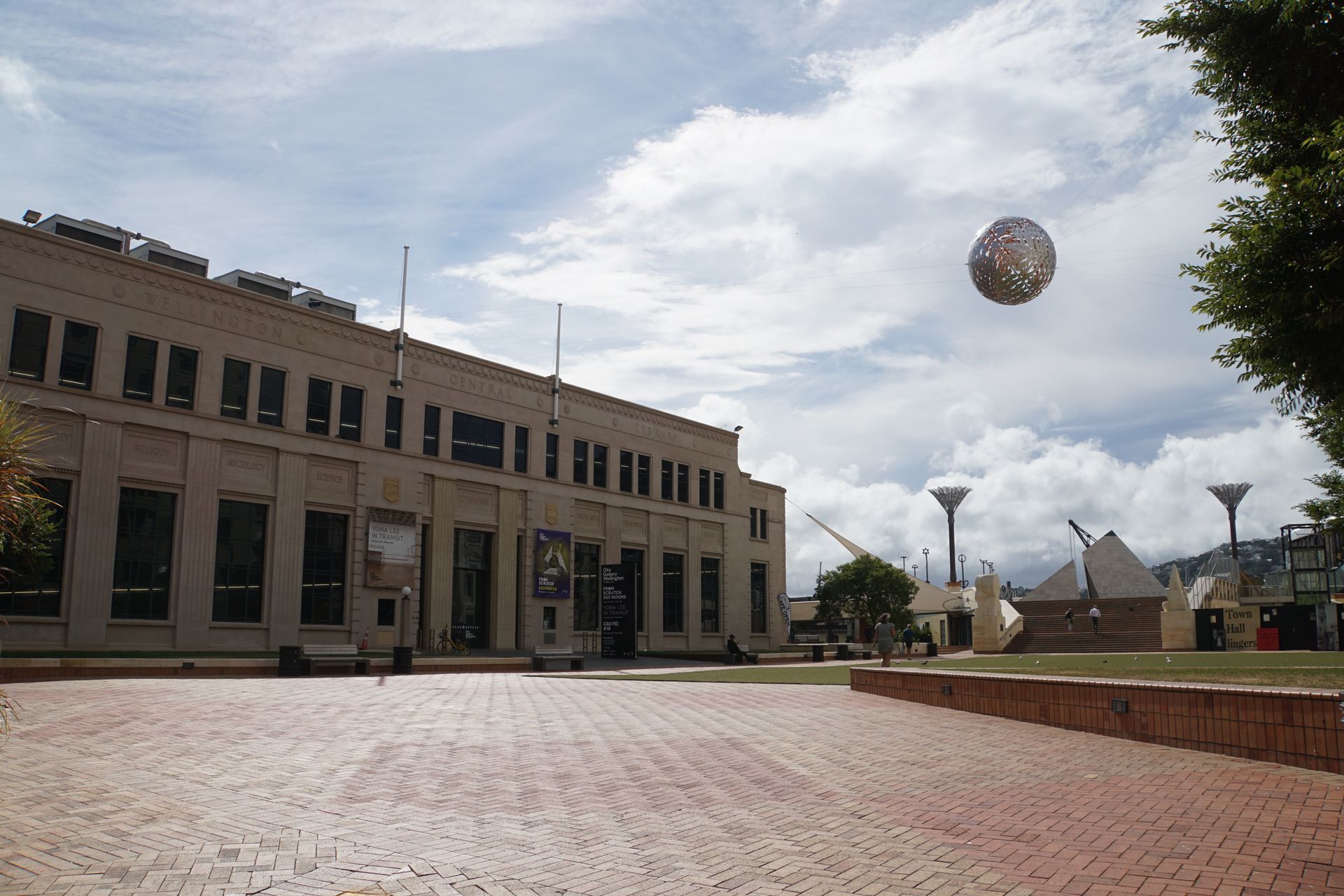
We continue along the waterfront, past the historic Hikitia, probably the oldest still active steam-powered crane ship in the world, to Te Papa, New Zealand's National Museum. Admission is free, and its exhibits range from (very) modern art to natural history artifacts to exhibits from Māori culture. Much of it is similar to the Auckland Museum, but everything feels a little more chaotic and unsorted... more artistic.
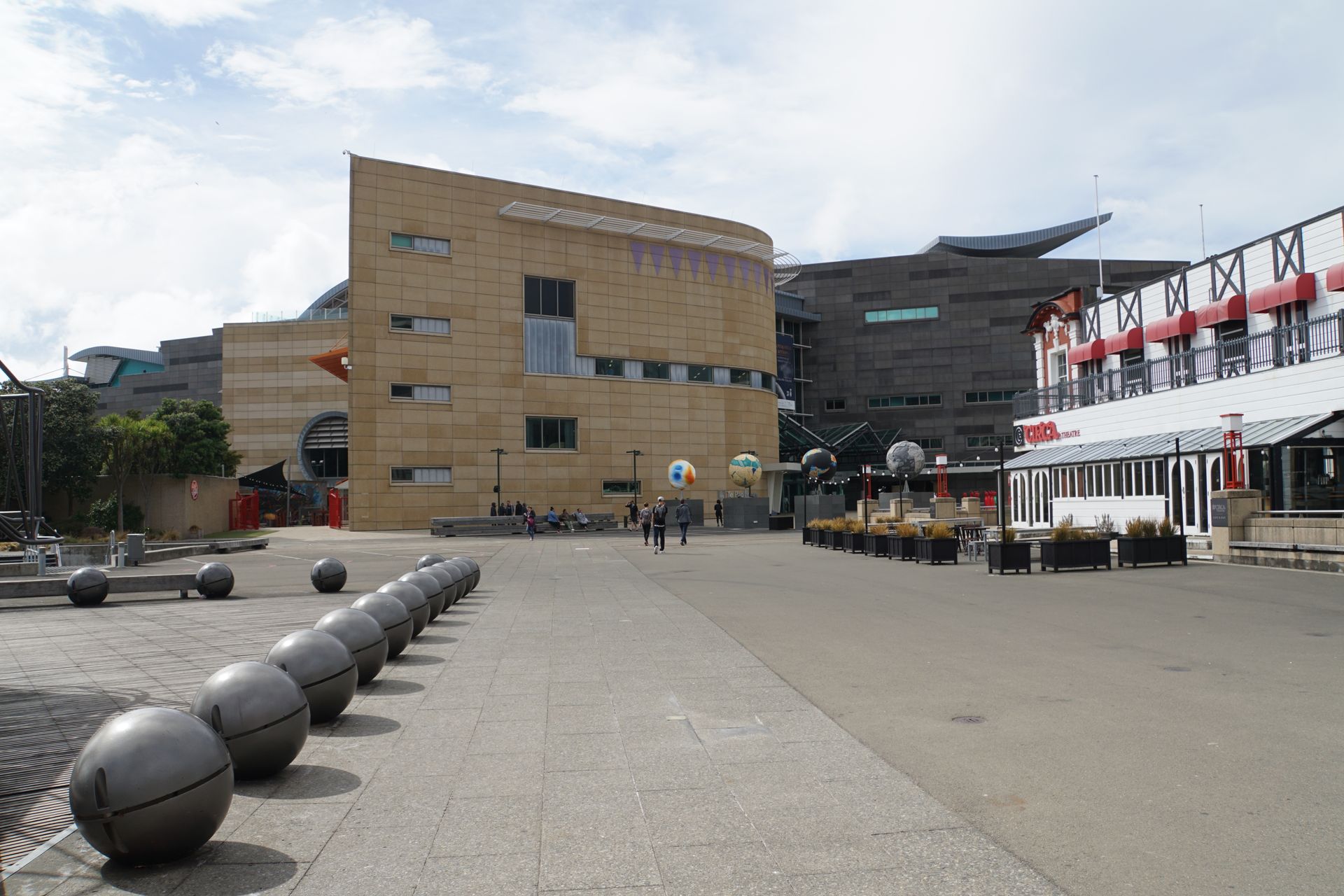
Te Papa - Museum of New Zealand
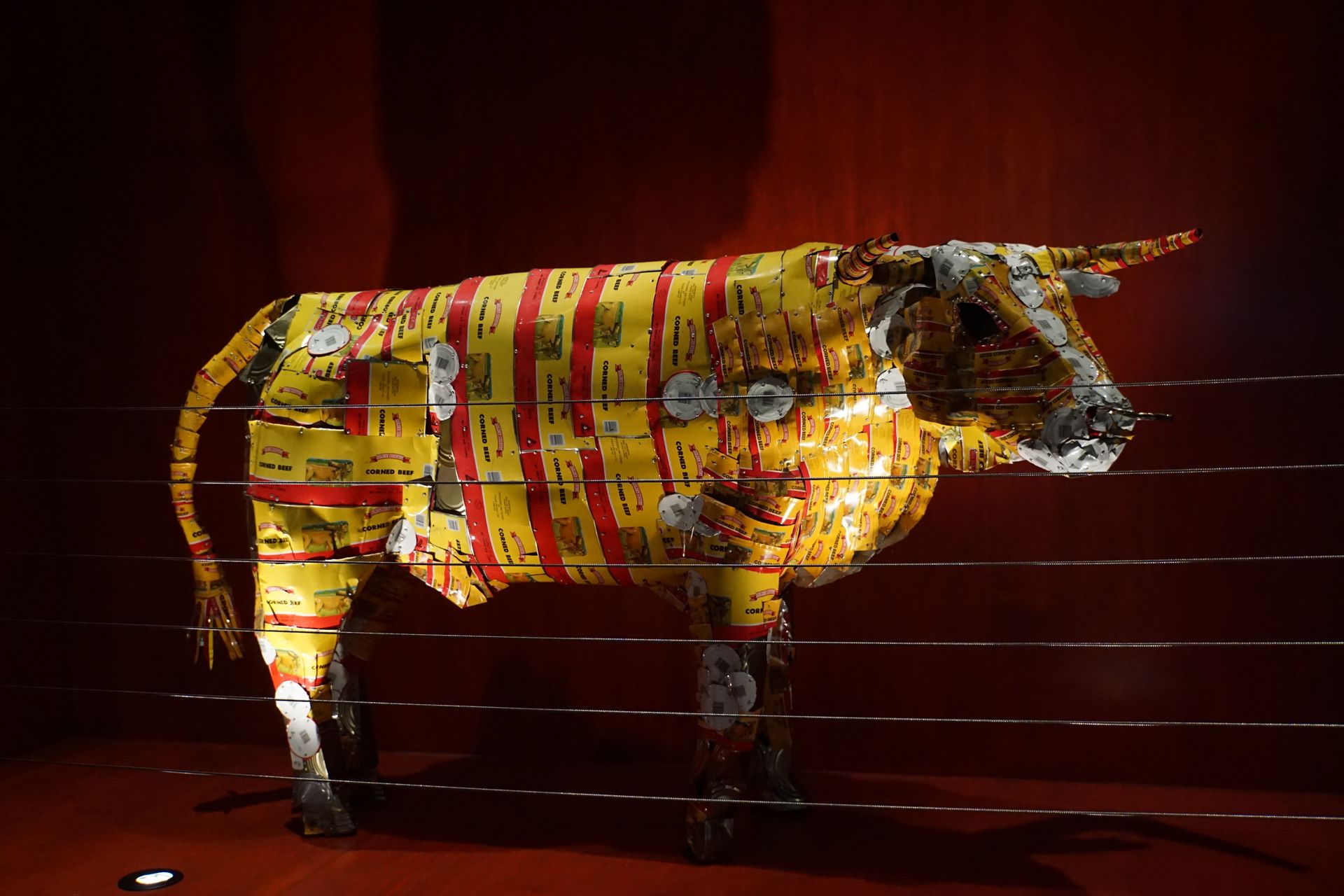
Next up is the Parliament District. On the way, we 'accidentally' pass by the Wellington Chocolate Factory, a chocolate factory that only processes fair trade cocoa beans and organic products, and we make a little stop. Here we buy delicious, certified handmade chocolate and treat ourselves to a thick hot chocolate to satisfy our emerging hunger.
Arriving in the Parliament District, we are immediately struck by the 1960s Cabinet Building (although it wasn't completed until 1982, it was designed in the 1960s). The so-called Beehive gets its name for a reason. Right next to it is the Parliament House, an Edwardian neoclassical building, and a bit further is the Parliamentary Library in a playful Neo-Gothic structure. Each building, taken individually, seems pompous, but the mixture gives the whole view a chaotic touch, typical of Wellington.
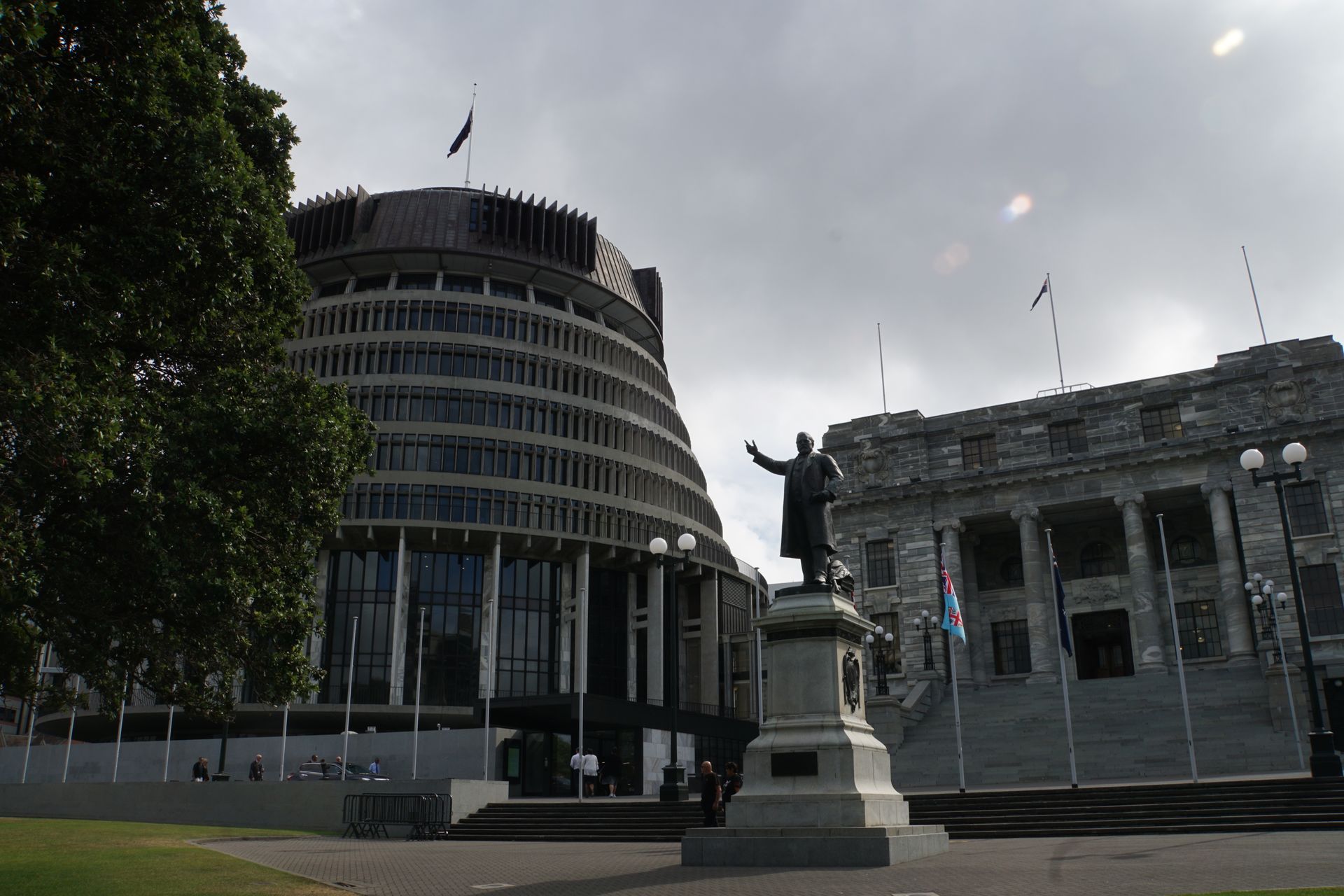
The Beehive and Parliament House

The Parliamentary Library
A special sight is certainly the Old Government Building below the currently used government buildings. Built entirely of wood, it is the second-largest wooden building in the world, after the 'Great Temple of the East' in Japan. Nowadays, it houses the law faculty of Victoria University of Wellington.

Made entirely of wood - On closer inspection, you can see the wood grain under the varnish
Now all that's left is a ride on the Cable Car and a stroll through the Botanic Gardens.
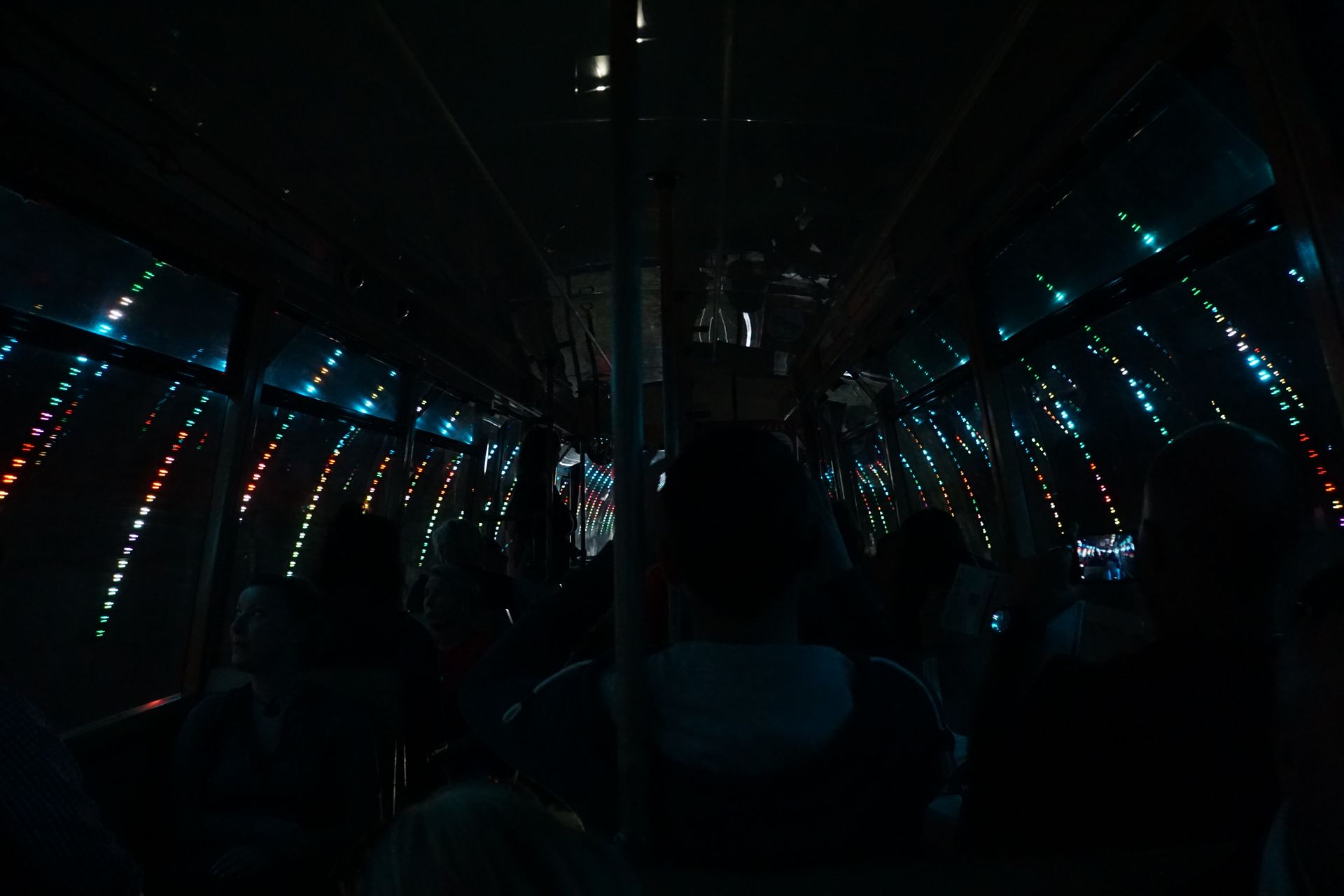
Light show in the Cable Car tunnel, at the top, we are greeted by the large botanical gardens with themed gardens and a planetarium

We toast our last evening on the North Island with a cider in a fancy bar near the harbor, then it's back to the tent. It was a long but very rewarding day. We certainly took in most of it in fast-forward, but Wellington is definitely worth a one or two-day longer stay. Next time!
The next morning, we have to get up early (we are actually sleeping in a down sleeping bag) because our ferry departs at 8 a.m., and we have to check in an hour earlier. When we arrive around seven-thirty, we have to join a line of cars. And over the next hour, that line only gets longer. We booked the ferry only five days earlier, and it was no problem with our small rental car. However, we are starting to understand that as a camper, it makes sense to book very early, especially if a specific date and time are desired. When we finally drive into the Bluebridge ferry's belly, we are quite impressed by its size. Cars and trucks can park on a road length of 2km. And the parking deck is full! The ferry is also full, but we manage to secure a small table with chairs and enjoy the 3 1/2 hour crossing to Picton. Even during the entrance into the fjord that leads to our destination port, we can already sense the wild beauty of the South Island, which we will explore in the coming weeks. The slopes are covered with trees, and branches of the Queen Charlotte Sound shimmer in bright blue and green. We are excited to explore the South Island!
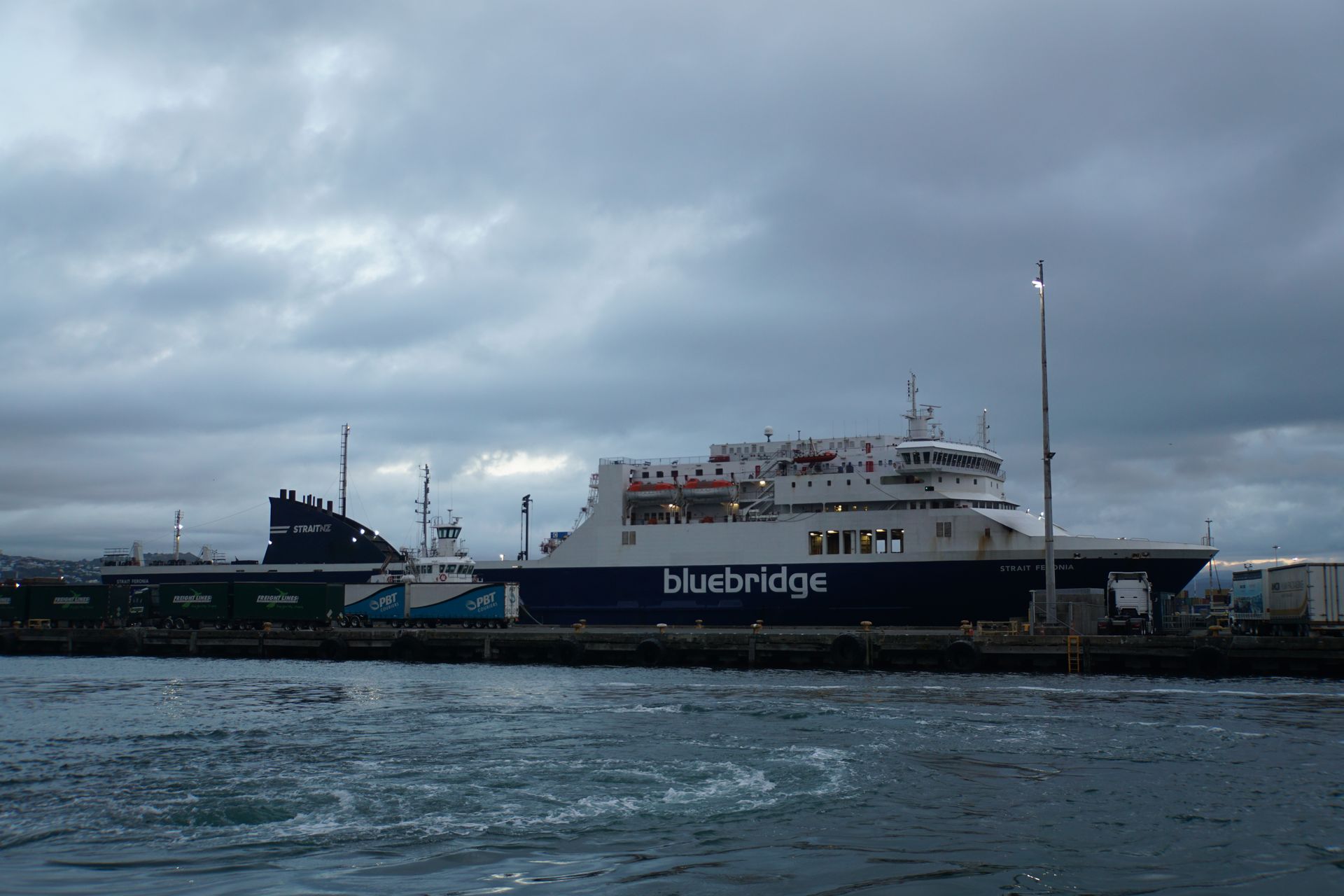
Our ferry
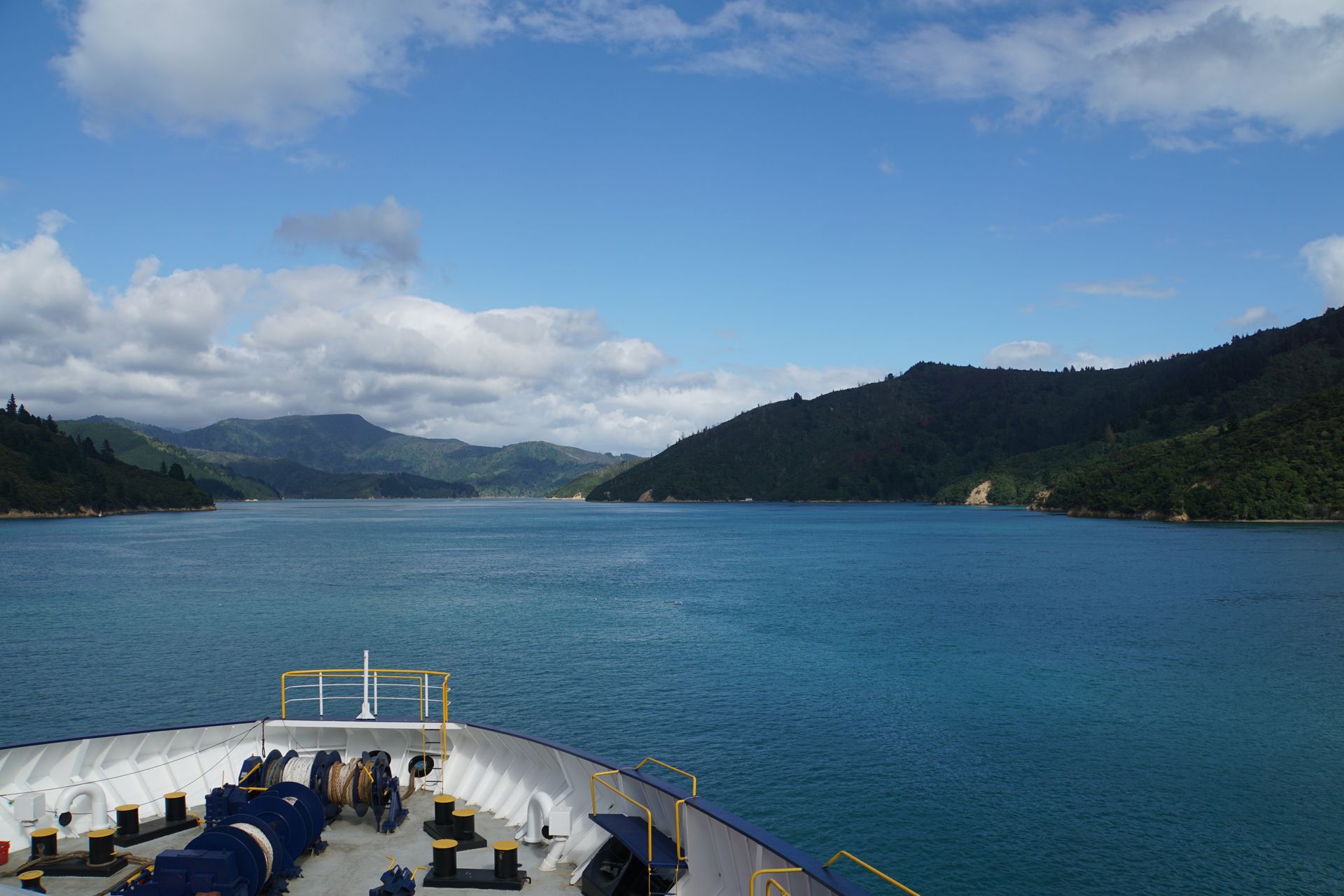
Entrance to Queen Charlotte Sound

Welcome to Picton
Ohauru ki te Panui
Whakautu

Ripoata haerenga Aotearoa
